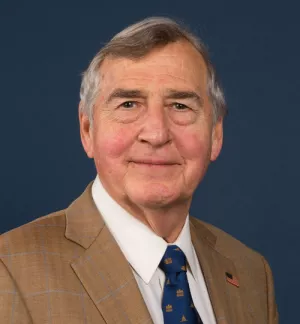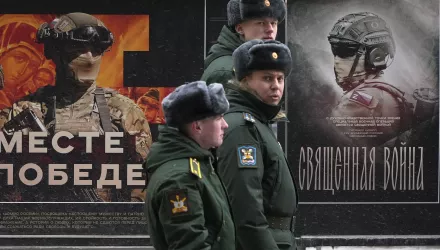The New York Times
April 23, 1998, Thursday
SECTION: Section A; Page 25; Column 1; Editorial Desk
HEADLINE: Showdown in Moscow
BYLINE: By Graham T. AllisonDATELINE: CAMBRIDGE, Mass.
BODY: Tomorrow's showdown in Moscow between President Boris Yeltsin and the Russian Parliament is shaping up to be not only a crisis in Russian politics, but also a profound threat to Russian democracy.
On the surface, the issue is straightforward. Having dismissed the entire Government, Mr. Yeltsin nominated Sergei Kiriyenko as his new Prime Minister. In the first and second votes by the Parliament, Mr. Kiriyenko failed to win a majority. If the Duma rejects him for a third time on Friday, a 50-50 bet according to savvy Muscovites, Mr. Yeltsin will dissolve the Parliament and call new elections, as the Constitution allows.
Beneath the surface of this drama, Mr. Yeltsin now threatens to unilaterally change the electoral rules of the game by which voters elect new members. Sergei Shakhrai, Mr. Yeltsin's representative to the Constitutional Court, suggested last week that the President might issue a decree changing the electoral procedures to eliminate the party-list proportional representation system now used to elect half the Duma. The objective: to crush the national political parties now emerging in Russia's proto-democracy and thereby tame the Parliament. This would, in effect, be a bloodless equivalent of 1993, when Mr. Yeltsin sent tanks to shoot the Parliament out of office.
The proposed decree to transform the electoral rules as Mr. Yeltsin calls for a new vote would threaten Russian democracy in three ways.
First, the move would atomize the legislature. In successful democracies, parties exist to give citizens an organized voice in government. In contrast, new members would be an unorganized assembly of individuals shorn of relationships other than dependence on Mr. Yeltsin. Grigory Yav linsky, the head of the most viable democratic party, has sought to sound this alarm, but without effect.
Second, the only democratically elected counterweight to Mr. Yeltsin's personal monopoly of power would be undermined. Though the Parliament is constitutionally weak relative to the executive branch, it is the principal check on unbridled Russian presidential power.
Third, the unilateral action to change the election law without the Parliament's approval would establish a dangerous precedent. The chairman of the Constitutional Court stated unequivocally last week that such an initiative would be unconstitutional. Should Mr. Yeltsin override or disregard the clear letter of the law, he or his successor could subsequently change the way votes are counted, or indeed decide whether free votes are even held.
In 1996, when Russians elected their president freely for the first time in a thousand years, one group of Mr. Yeltsin's advisers sought to cancel the vote, fearing that he would lose. In the end, the good Yeltsin chose instead to be the father of Russia's democracy.
President Clinton should use his special relationship with the Russian leader to insure that the good Yeltsin stays the course. The time for the phone call is now.
Graham T. Allison is director of the Belfer Center for Science and International Affairs at Harvard's Kennedy School of Government. Matthew Lantz of Harvard's Strengthening Democratic Institutions Project assisted in writing this article.
Allison, Graham. “Showdown in Moscow.” The New York Times, April 23, 1998



